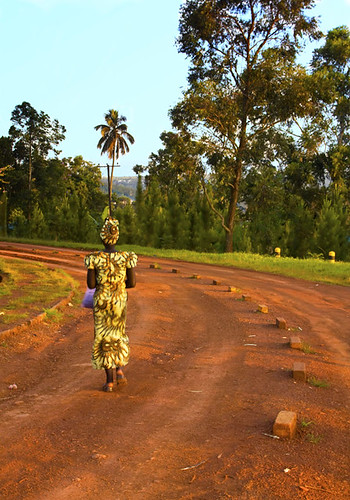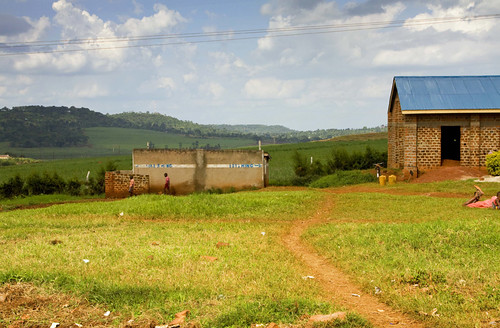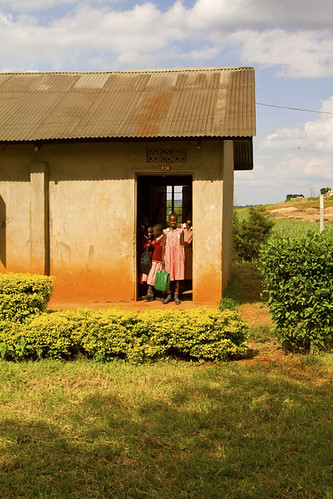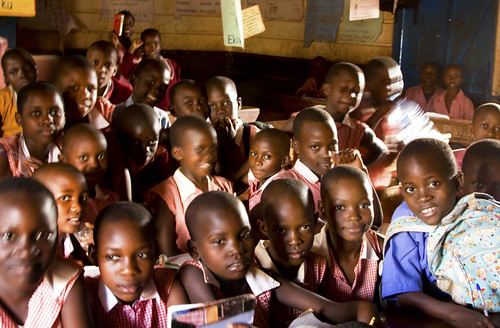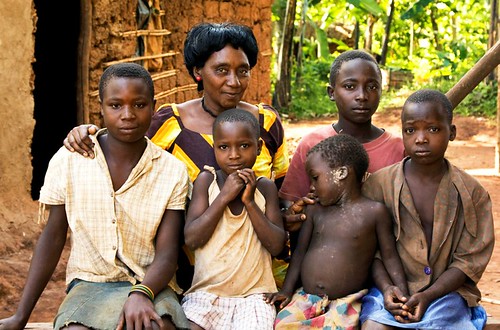The sneakers were gently worn, not tattered and soiled like the embarrassment my running shoes inevitably become after months of jogging dusty trails, but they could not be described as new. Vaguely soiled, the blue hue muted, they had begun to lose their new shoe form, the stiffness softening appearing to mold to a certain pair of feet. My mother had probably worn them for a few weeks walking the paved hills of our neighborhood, her feet spinning round and round in them at the local Y. I recalled the sneakers very clearly, seeing them again in my mind when they became the unexpected topic of conversation an evening last week.
I was standing squeezed next to a cocktail table at the Natural History Museum in San Diego surrounded by docents and whalers, former teachers and biologist, my mother and dozens of other volunteers being thanked for their service with chicken fajitas and red table wine.
“And this is the daughter who just got back from Africa,” my mother said introducing me to her co-volunteers, a way of distinguishing me from my sisters – my social awkwardness seemingly not distinctive enough. The women were receptive and apparently interested in my journey and began asking about Uganda. What did the people eat? How did they cook? Where did they get their water? What do their homes look like? I explained the life that I had come to know, the daily rhythms that had become comfortable and routine. It would take hours to cook a meal of beans and posho or maize and potatoes, you fetch your own water (although I had plumbing), most villagers live in mud homes, the people in town usually dwell in blocks of simple brick construction.
“And is it strange to be back?” They asked.
Yes, it is. And then my mind began to drift.
As we stood around the cocktail table, my mom telling them about her trip to visit me, I thought of all the things they didn’t have - they, my Ugandan family and friends - their homes sparse and uncluttered, their lives devoid of material worth, that world far away and fading in my mind; and I considered all the things we have – we, my family and friends here in America - all the things bombarding us to be bought, all the things cluttering our homes and minds, that world sharpening back into focus before my eyes; and I remembered how happy I was and how happy they were not owning very much, unencumbered with possessions, living without incessant indulgence, without insatiable consumption, without the sickness of constant coveting that seeps insidiously, often unperceivably, into every pore.
And then my mom began telling the women about giving my Ugandan sister, Ester, a Clinique make-up bag, a free gift my mother received having bought magenta lipstick or grey eyeliner or the like, and how Ester’s whole face lit up when she received it and how she proudly carried the bright pink plastic container with her everywhere thereafter as a privileged American would a Prada handbag, and as my mom told the volunteers this I recalled the night she gave the bag to Ester, my mom saying to me, rather surprised, that if she knew Ester would like the bag so much she would have brought more, and I envisioned I am sure the same thing as my mother just then: a whole cabinet stuffed with similar toiletry bags collected over the years from department store make-up counters, all sitting under the sink perfectly unused.
And that’s when my mom told the women about the sneakers, those faded cobalt-stripped Nike sneakers, one of several pairs resting on the shelves in our laundry room. I knew my mom gave the sneakers to Beatrice, but I was not with them at the time, not knowing exactly what happened until the evening at the museum; or, maybe I did know and had forgotten; I had forgotten because it was unmemorable, an expected exchange, a normal response at the time, at a time when I was accustomed to living without and seeing others live the same.
Sipping wine from plastic cups, an intact dinosaur skeleton erect on the far side of the long, airy room, a gift shop just next to us with jewelry and pictures and sculptures (one abstract piece of soft black stone strangely similar to my African carving of a family standing in a circle holding hands, their arms turning indefinitely in unison), we stood around the cocktail table enjoying the day’s final light golden and dramatic falling through enormous windows; my mom said to the women:
“I gave one of the girls, Beatrice, my old sneakers. I gave them to her the night I was leaving because I didn’t really need them and I knew she would like them. I brought her into the bedroom so the other kids wouldn’t see and said, ‘Here, Beatrice. I want you to have these.’ She took the sneakers and then dropped to her knees. She grabbed my hand and began kissing it, saying over and over again, ‘thank you, thank you, thank you,' while tears streamed down her face.”
Old Shoes






